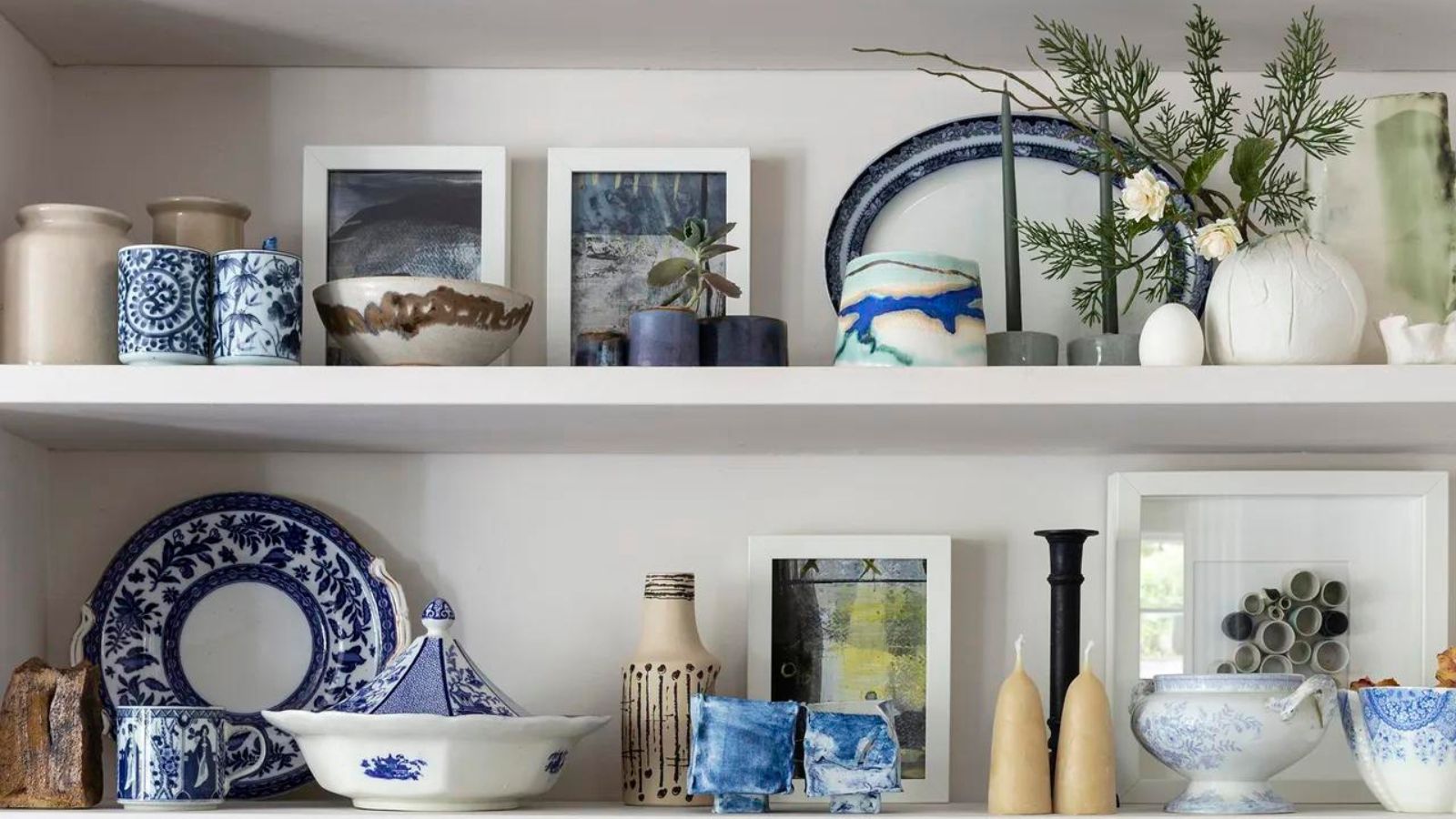
Have you ever walked into a room, felt overwhelmed by the mess, but soon found yourself tuning it out? There's a name for that: clutter blindness. It’s a common issue where we become so accustomed to the clutter around us that we stop noticing it in order to cope.
Clutter blindness can show up in various ways, from kitchen countertops buried under random items to closets overflowing with clothes you haven’t touched in years. Entire rooms can turn into storage spaces, and the longer the clutter remains, the harder it feels to tackle, leading to a stressful cycle that affects your mental well-being.
But here’s the good news: clutter blindness doesn’t have to be permanent. With the right approach – and some practical steps – you can break free from it. Whether you’re dealing with minor messes or seeking substantial decluttering tips for hoarders, there are simple ways to reclaim your space and restore order to your home, say our experts.
What is clutter blindness?
According to Julia Peak, professional home organizer and founder of The Precise Place, clutter blindness is a phenomenon where we become so accustomed to the clutter in our environment that we stop noticing it altogether.
Julia explains, ‘The piles, stacks and overflowing closets become such a normal part of your daily routine that you stop seeing it. We walk past the same piles of stuff every day, and eventually, our brain just filters it out. The more time we spend in a space, the more our brain gets used to what it looks like. Clutter blindness isn’t about being lazy or not caring about your space. It’s something that can happen to anyone for a variety of reasons.’
What causes clutter blindness?
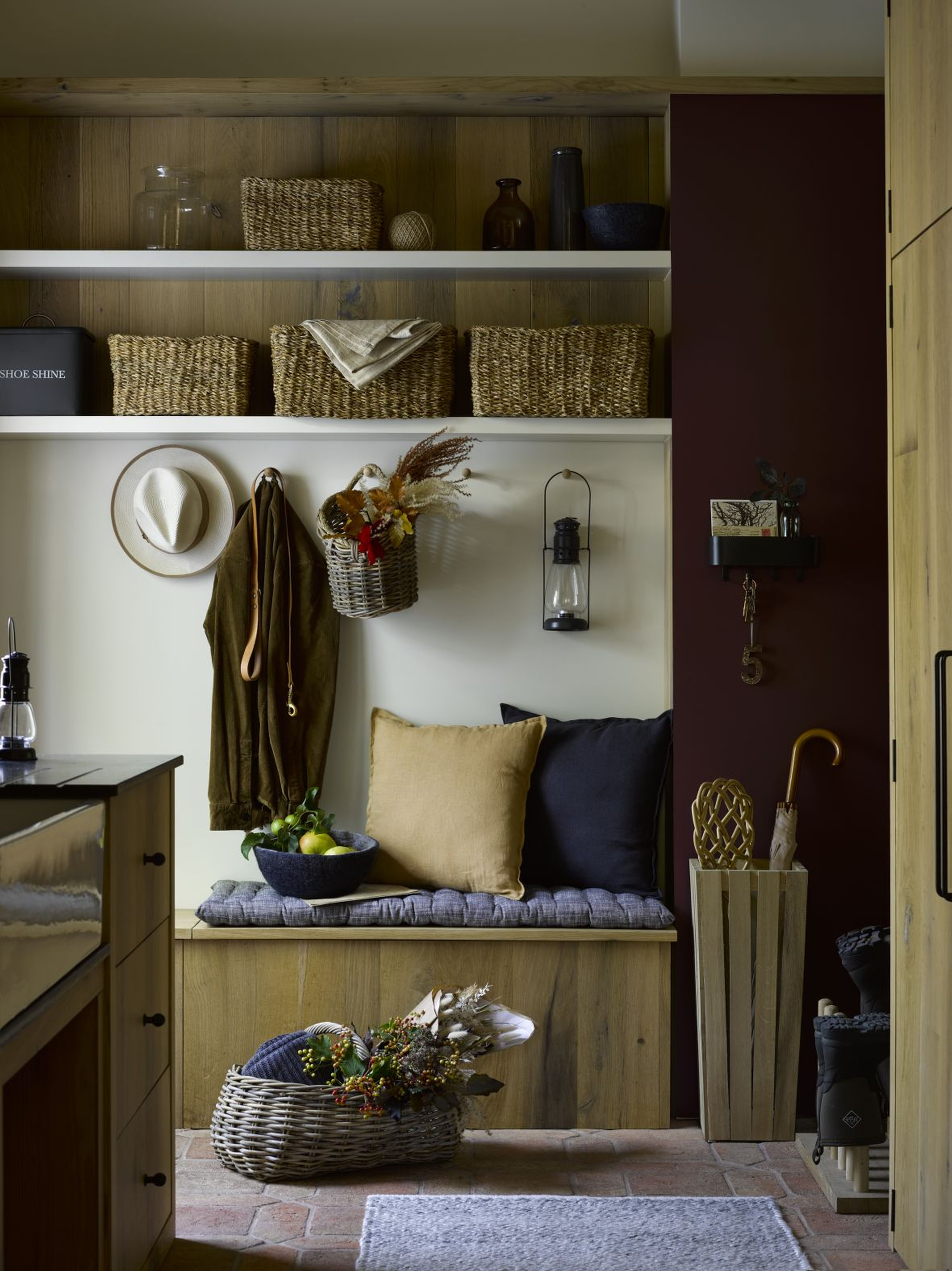
According to certified psychotherapist Megan Drummond, clutter blindness rarely happens overnight. Instead, it results from several psychological and emotional factors that can gradually take hold, often complicating the process of home organizing.
Megan explains, ‘In my experience, clutter often accumulates during times of emotional turmoil. When life feels overwhelming due to stress, anxiety, depression, or grief, our external environment can start to mirror our internal chaos. The clutter serves as a physical manifestation of our mental state.
‘Over time, as the clutter grows, we might become so emotionally overwhelmed that our brain simply tunes it out as a coping mechanism. For example, a client who had recently gone through a difficult loss, her home, once a sanctuary, had become a chaotic mix of unfinished projects, piles of clothes, and unopened mail. She told me she didn't see the mess anymore; it was just "there." This is a classic example of clutter blindness rooted in emotional overwhelm.’
Megan continues, ‘Clutter can also be a form of avoidance. We might avoid addressing the mess because it represents emotions we're not ready to confront. This avoidance can eventually lead to denial, where we no longer acknowledge the clutter's presence, even though it continues to impact our mental state.’
'Clutter blindness can also develop as a result of gradual adaptation. As clutter accumulates slowly over time, we adapt to it. Research shows that visual clutter can make it harder to focus and perform tasks. This adaptation can lead to a state where we no longer recognize the extent of the disarray around us. Ultimately, the brain, in an effort to manage the constant visual stimuli, begins to filter out the clutter, making it less noticeable.'
How common is clutter blindness?
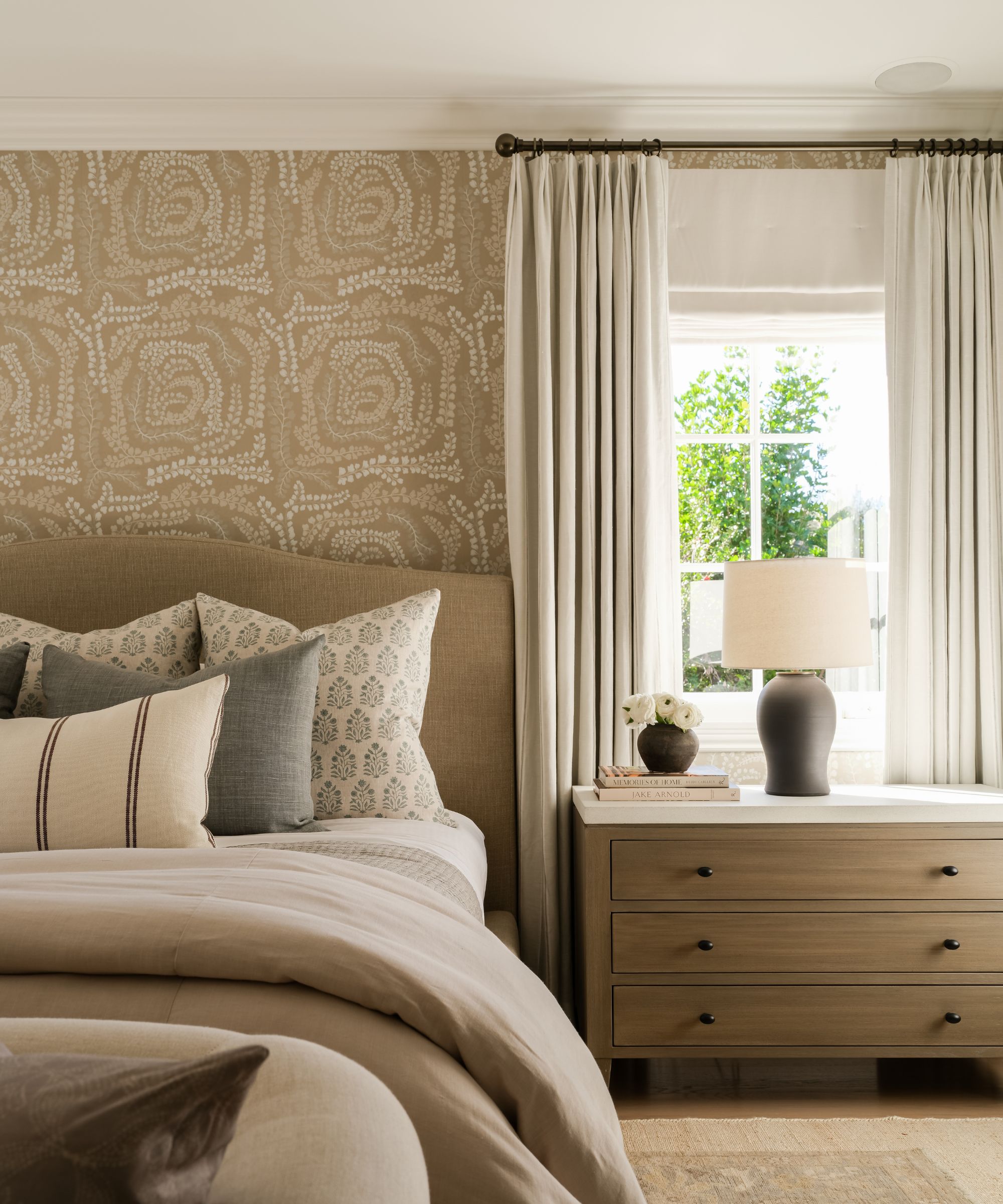
Clutter blindness is a surprisingly prevalent issue for many of us. Although there has been no large-scale study of US homeowners, the experts we spoke to agreed it's not uncommon, and they noted encountering clutter blindness in one out of every three homes they work in. The phenomenon is particularly prominent in households dealing with chronic disorganization, mental health challenges, or significant life changes.
How does clutter blindness manifest in a home?
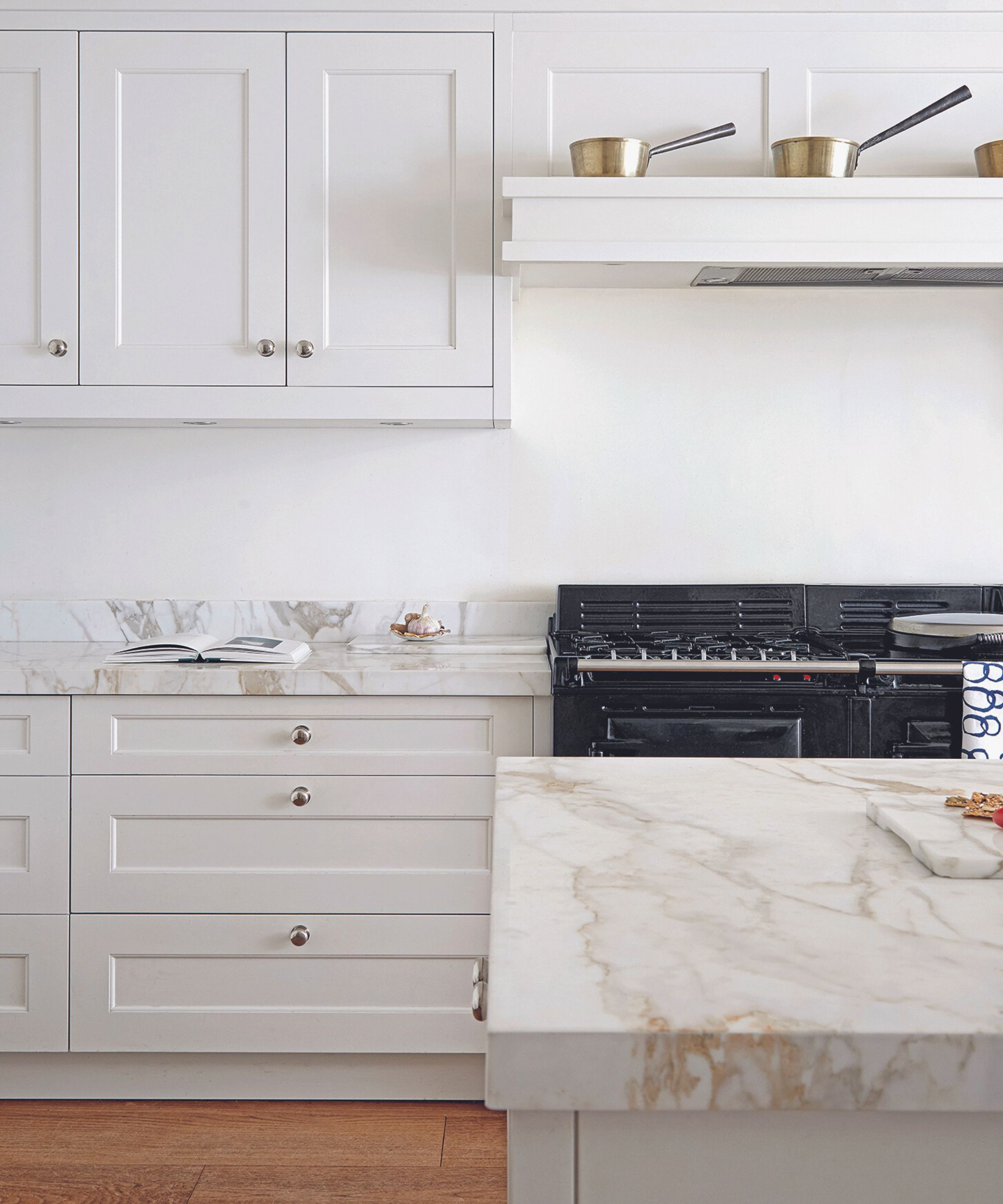
Clutter blindness can manifest in various ways throughout a home. Common signs include:
- Surfaces such as kitchen countertops and dining tables become dumping grounds for random items.
- Clutter is piled up in entryways, where shoes, bags, and mail accumulate unnoticed.
- Drawers and closets overflow with clothes and unused items for months or years.
Moreover, rooms can become storage areas filled with things you no longer need but can't seem to part with. Over time, these spaces may become unusable, turning into ‘junk rooms’ that you avoid. This clutter not only takes up physical space but also adds to the mental burden, making it hard to stay organized.
Rooms filled with junk can also become a pest-magnet for its many undisturbed hiding and nesting spaces.
How do you know if you are experiencing clutter blindness?
To identify if you are experiencing clutter blindness, Diane Quintana, a certified professional organizer, suggests the following exercise:
- Take a picture of the room you suspect may be affected by clutter blindness.
- Go outside and without looking at the picture, write down all the things in the room and their placement, essentially describing the room.
- Look at the picture and ask yourself, what did you forget to write down? What don't you "see" any more because you've become blind to it?
Actionable steps to overcome clutter blindness

Thankfully, there are a few ways you can take back control and combat clutter blindness. Julia Peak recommends the following actionable steps:
1. Take a step back and identify your clutter hot spots
'Try to view your home as if you’re seeing it for the first time. Where is clutter accumulating? One trick is to take photos of each room or hotspots such as kitchens, entryways, and garages. Sometimes seeing things in a photo can help you notice clutter you’ve been overlooking in real life.'
Megan Drummond adds, ‘Take time to explore why you might be holding onto certain items. Are they tied to specific memories, people, or emotions? Understanding the emotional significance of your possessions can help you make more intentional decisions about what to keep and what sentimental items to let go of. If you find that clutter is tied to deeper emotional issues, consider working with a therapist to explore these feelings.'
Understanding the root cause of why you are accumulating and keeping clutter can be a crucial step in overcoming the problem.
2. Start small

Julia Peak recommends you don’t try to declutter your entire home in a day. Instead, she says, ‘Pick a small, manageable area to start with, like decluttering the junk drawer. This can help you build momentum and avoid feeling overwhelmed. Commit to spending just 10-15 minutes a day decluttering. This can make the task feel more manageable and less overwhelming, and it’s amazing how much you can accomplish in a short amount of time when you’re focused.’
Megan Drummond agrees, ‘Clutter can feel overwhelming when viewed as a whole. Instead, break the task down into small, manageable steps and consider using a timer to break the task into 15-minute increments. When the timer goes off, stop and assess your progress. This technique provides structure and helps prevent the task from feeling insurmountable.’
Punteha van Terheyden, head of solved at Homes & Gardens loves the 'didn't know' decluttering method. 'If you didn't know, or forgot you had a particular item, get rid of it. I have decluttered so many pockets of my home with ease using this method as it removes the guilt I sometimes feel knowing at some point, I've spent money on this.'
3. Make sure everything has a home
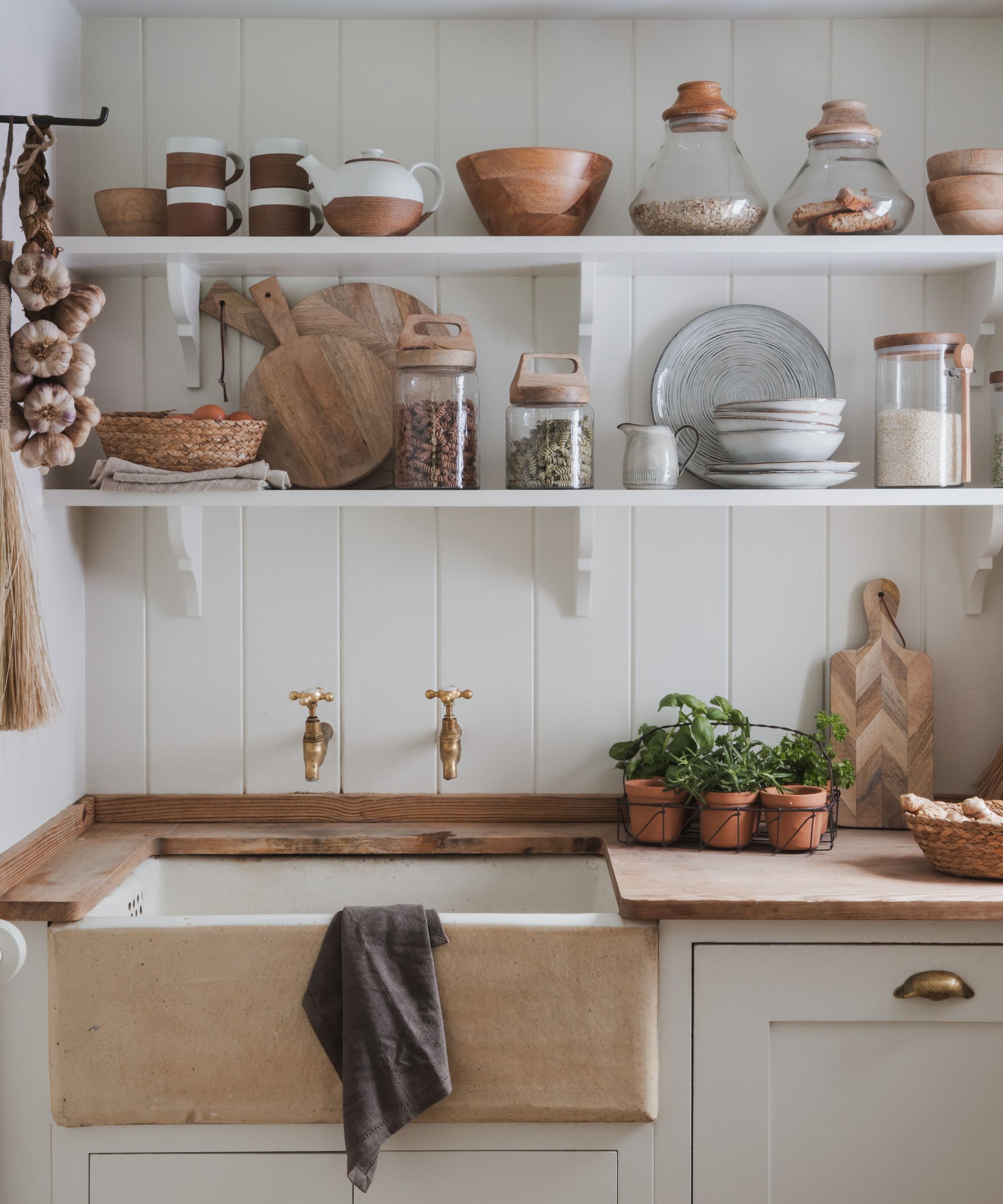
To keep your home clutter-free, make sure everything has a clear space where it belongs. Create an organized home by finding a practical place for all your stuff. If you can't find a specific place for something, consider whether you really need it. If yes, find a space for it, even if that means getting new storage. If not, decide whether to donate, sell, or discard it.
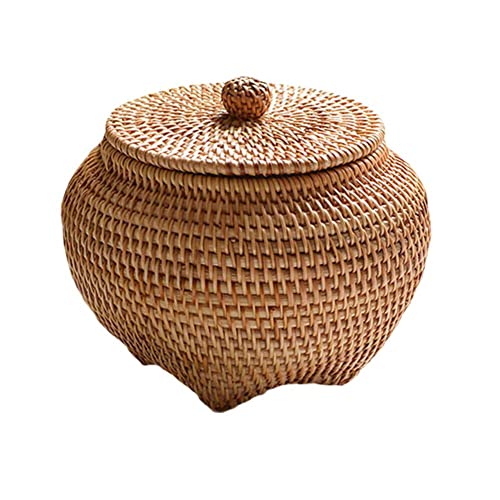
This stylish, compact rattan box is perfect for stowing away keys and small items that may otherwise create visual clutter.
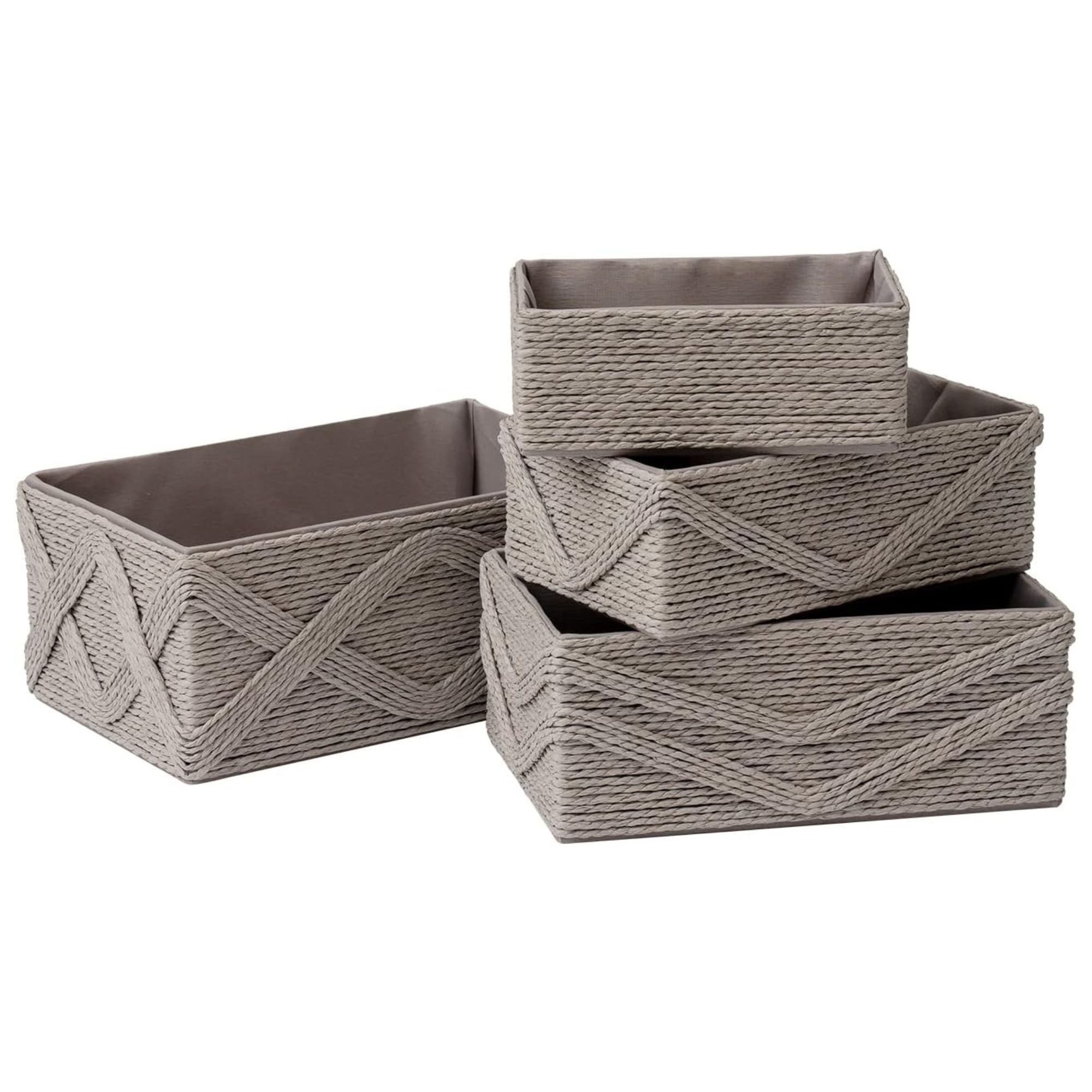
This set comes in four sizes, ideal for organizing a bathroom. The larger basket is suited to bigger items like towels, while the smaller ones are great for skincare items. It also comes in black and white, and is Amazon's Choice, meaning it is rarely returned and highly rated.

This staircase basket is handy for corralling items that need to go up the stairs at the end of the day, week or the next trip up, conveniently removing the eye-sore of clutter piling up on the steps and encouraging regular putting away of items, stopping clutter in its tracks.
Diane Quintana asks her clients to pretend that they are a server in a restaurant. She explains, ‘If you think about it, restaurant servers rarely have empty hands. They are either bringing something to a table or clearing something from a table. No empty hands. As you pass through a room and notice something out of place instead of thinking to yourself, 'I'll put it away later' carry it with you and at least, put it near where it belongs - if you don't have time to put it away right then.’
Punteha van Terheyden does this in what she calls her 'fly-by' tidying, one of the few things she does to maintain her tidy home to stop it overwhelming her. Whenever she is moving around her home, she picks up stuff along the way and either puts it away, or puts it closer to where it needs to go, exactly as Diane explains above and it helps do micro-tidying tasks throughout the day.
4. Think before you buy
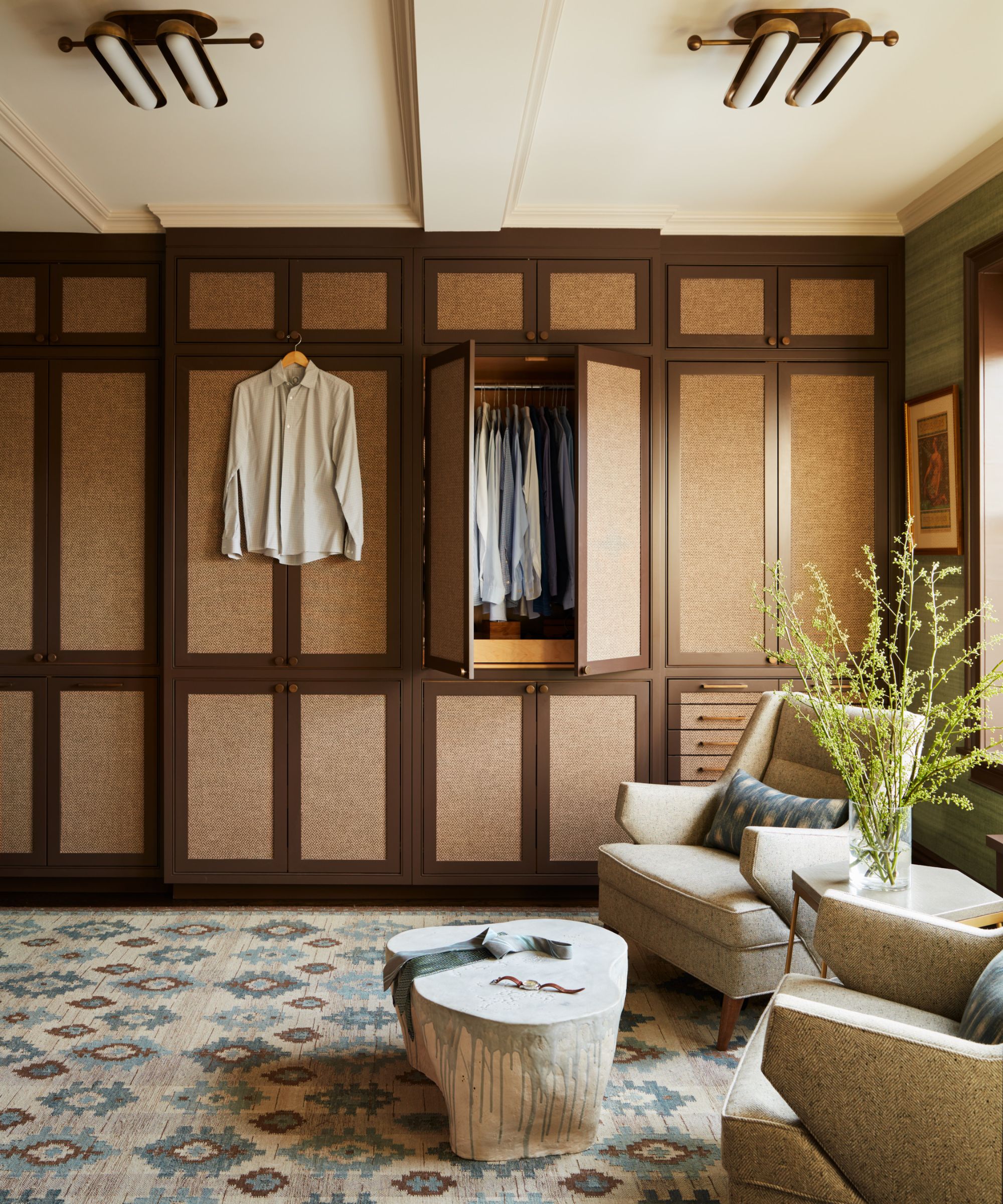
Be mindful of what you bring into your home. Before purchasing something new, ask yourself if you really need it and where you will store it. This can help prevent future clutter from accumulating. It’s also possible you may be overlooking certain items in your home that can be reused or repurposed rather than repurchasing duplicates of these items.
5. Don’t delay
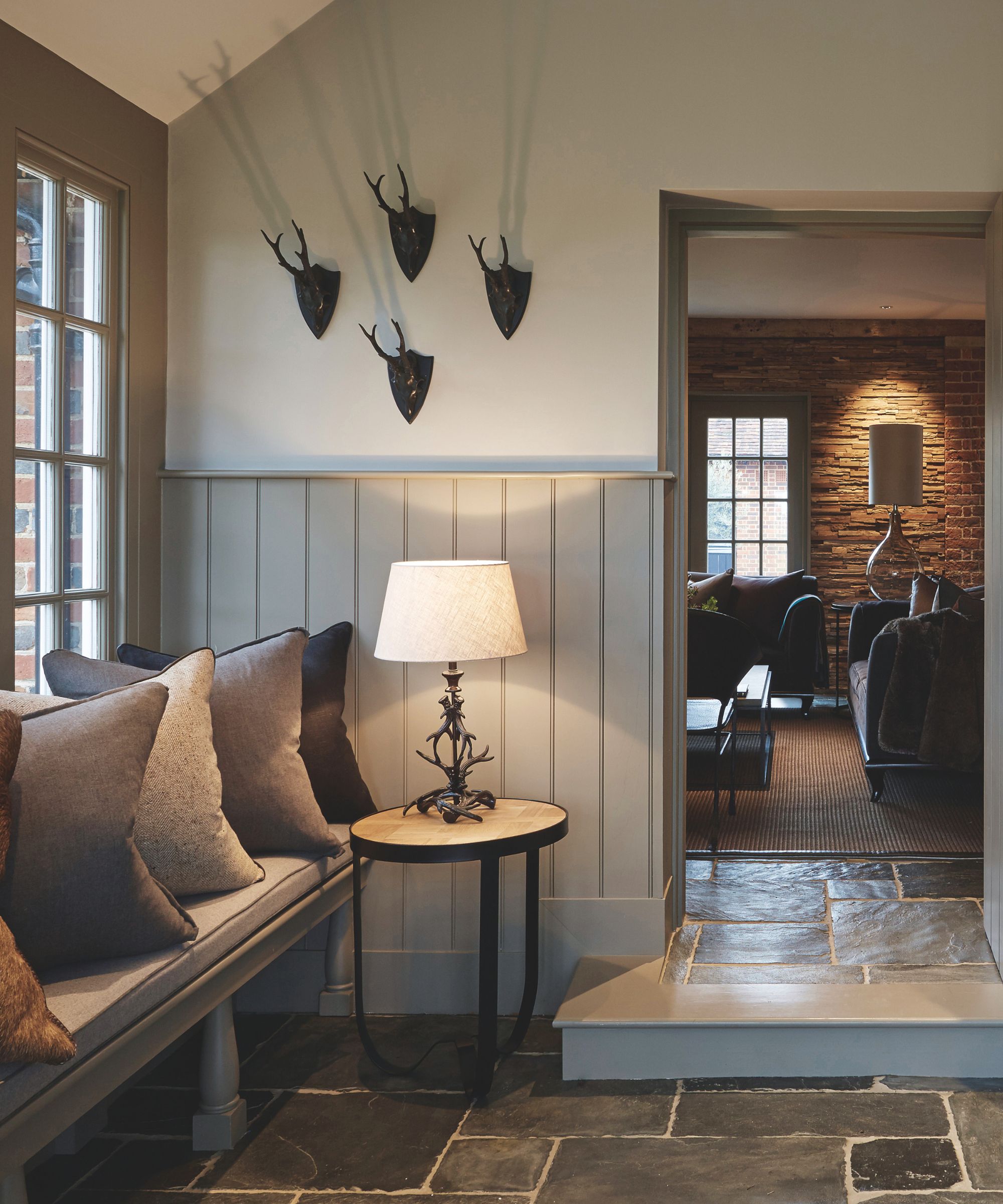
According to Diane Quintana, ‘Sometimes clutter accumulates because we have delayed making decisions about what to do with it or we have put off doing some errands, like returning things to a store or taking them to the Post Office.’
If this is the case, schedule time each week to make those decisions and do those errands. You may find it helpful to create a designated drop zone in your entryway. Install hooks for bags and keys, a shoe rack for footwear, and a small basket or wall-mounted organizer for mail. Make it a habit to organize your mail immediately and store shoes and bags as soon as you come home.
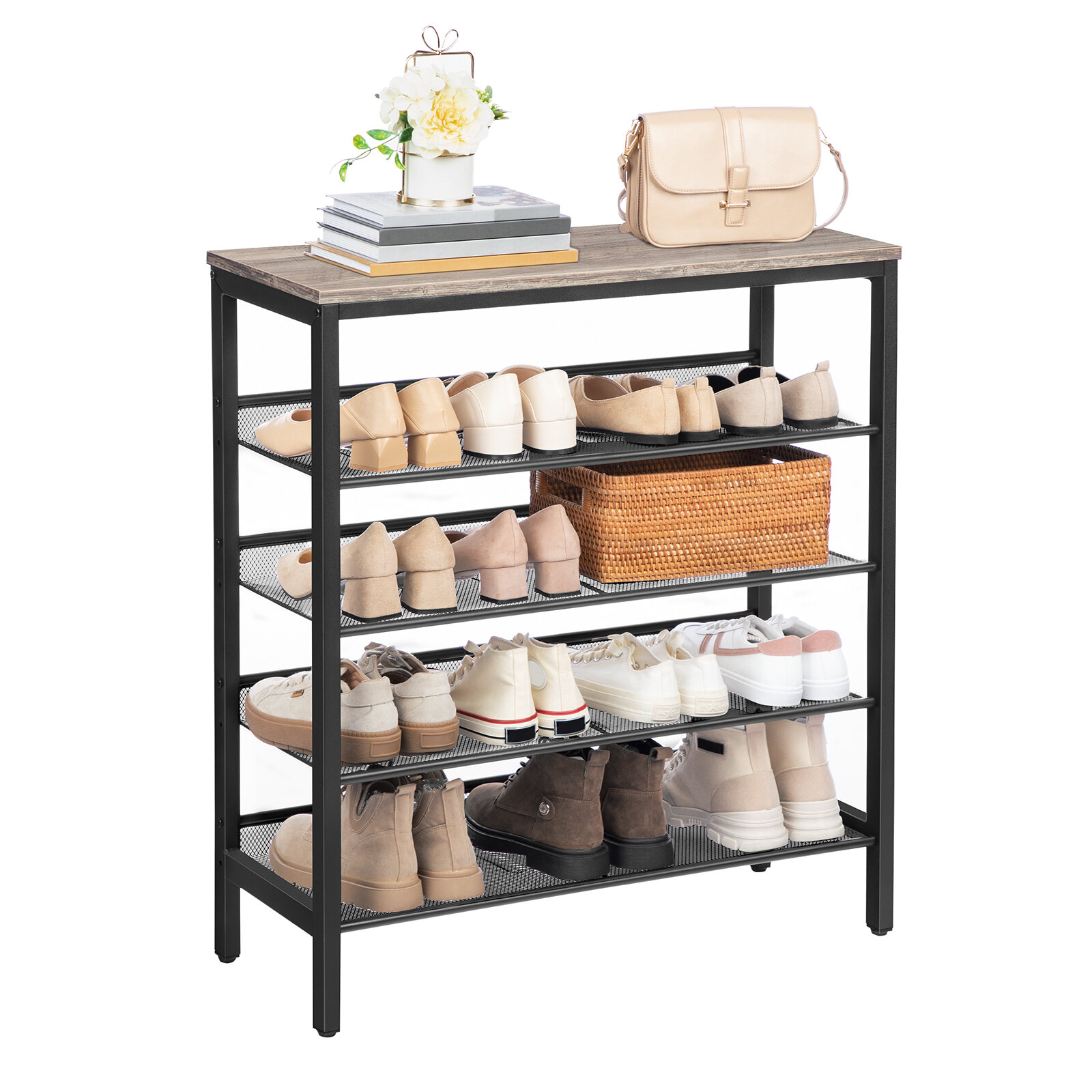
Keep your footwear organized and out of the way with this five-tier storage rack that can hold up to 20 pairs of shoes.
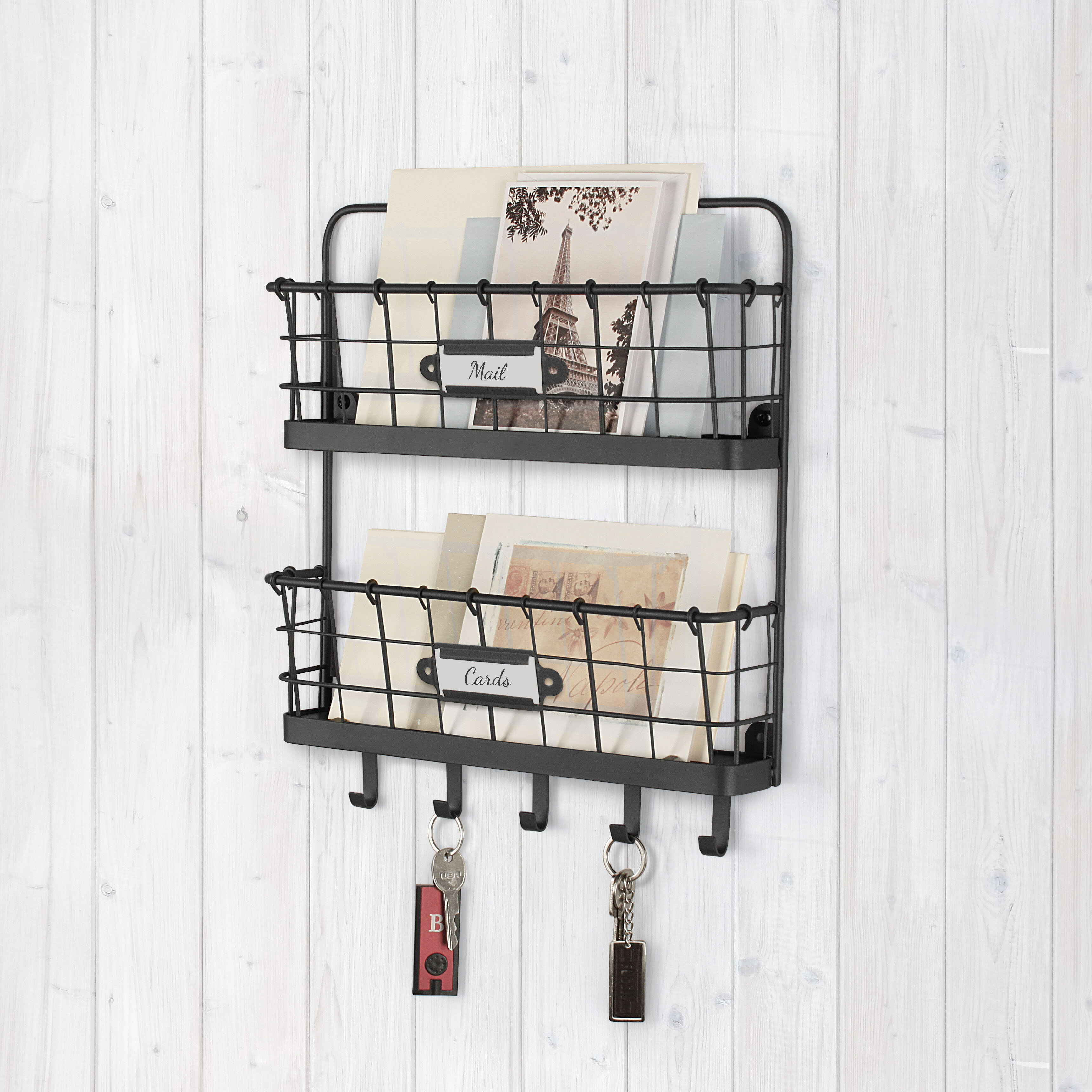
It's easy to keep your mail in order when you keep it organized in a smart wall-mounted storage unit such as this.
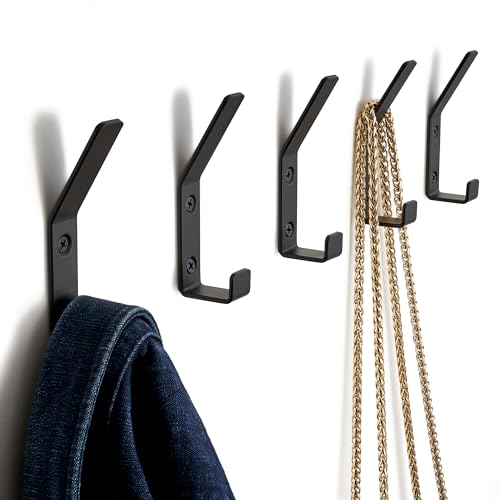
Stylish and sturdy, these metal double hooks are easy to install and perfect for hanging coats and bags and perfect for creating a designated drop zone. Store away out of season clothing and accessories to keep this space functional.
7. Regularly reassess your space
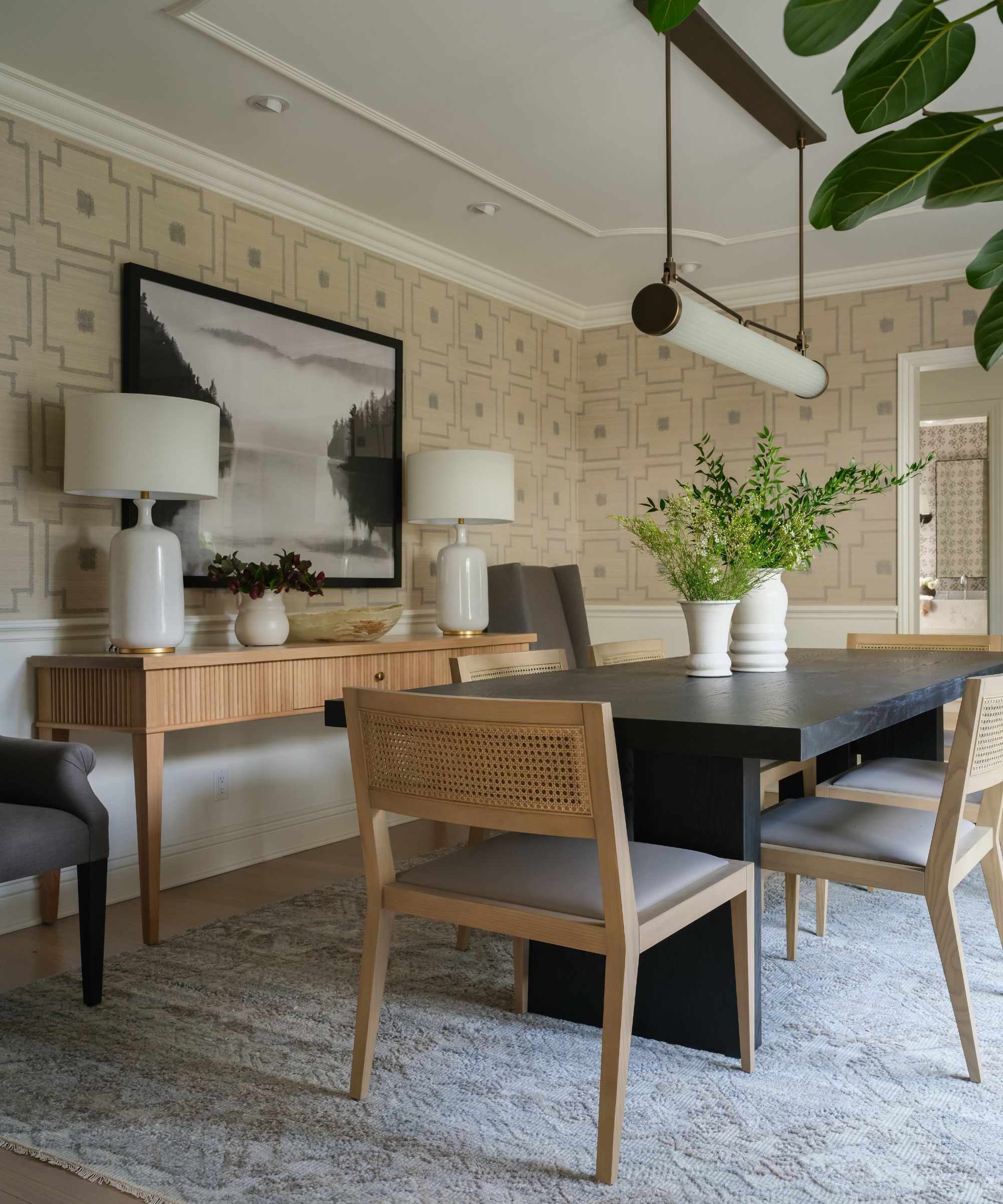
Try making it a habit to spend a few minutes a day decluttering your home. Schedule a time once a month to walk through each room and identify any areas where clutter might be starting to build up again.
For cluttered kitchen countertops and dining tables, put a daily or weekly "clear-off" routine in place. Set aside a specific time each day or week to remove all items that don't belong on these surfaces and store frequently used items in accessible places, like cabinets or kitchen drawer organizers, to prevent them from gathering dust on surfaces.
Diane Quintana goes a step further, suggesting you should, ‘Schedule a deep cleaning of every room in your house. I'm not talking about Spring cleaning your home. I'm talking about assigning a month to every room/zone in your home. Take that month to thoroughly clean and clear the zone/room. Then the rest of the year just do routine dusting and vaccuming in that zone/room. This teaches you exactly what is in that zone/room and gives you the opportunity to intentionally re-organize the space.’
8. Seek Support
Lastly, if you’re feeling overwhelmed by clutter, sometimes, having someone else help you with decluttering can provide a fresh perspective and additional motivation. If this is the case, try finding someone you trust to hold you accountable and offer gentle encouragement without judgment.
Megan Drummond concludes, ‘If clutter blindness is deeply ingrained or linked to significant emotional issues, working with a therapist specializing in cognitive behavioral therapy (CBT) may also provide the support needed to make lasting changes.’
Don’t lose control of clutter in your home, if you’ve started to spot the signs of clutter blindness, set some time aside to conquer the mess and equip yourself with new storage and cleaning supplies.







